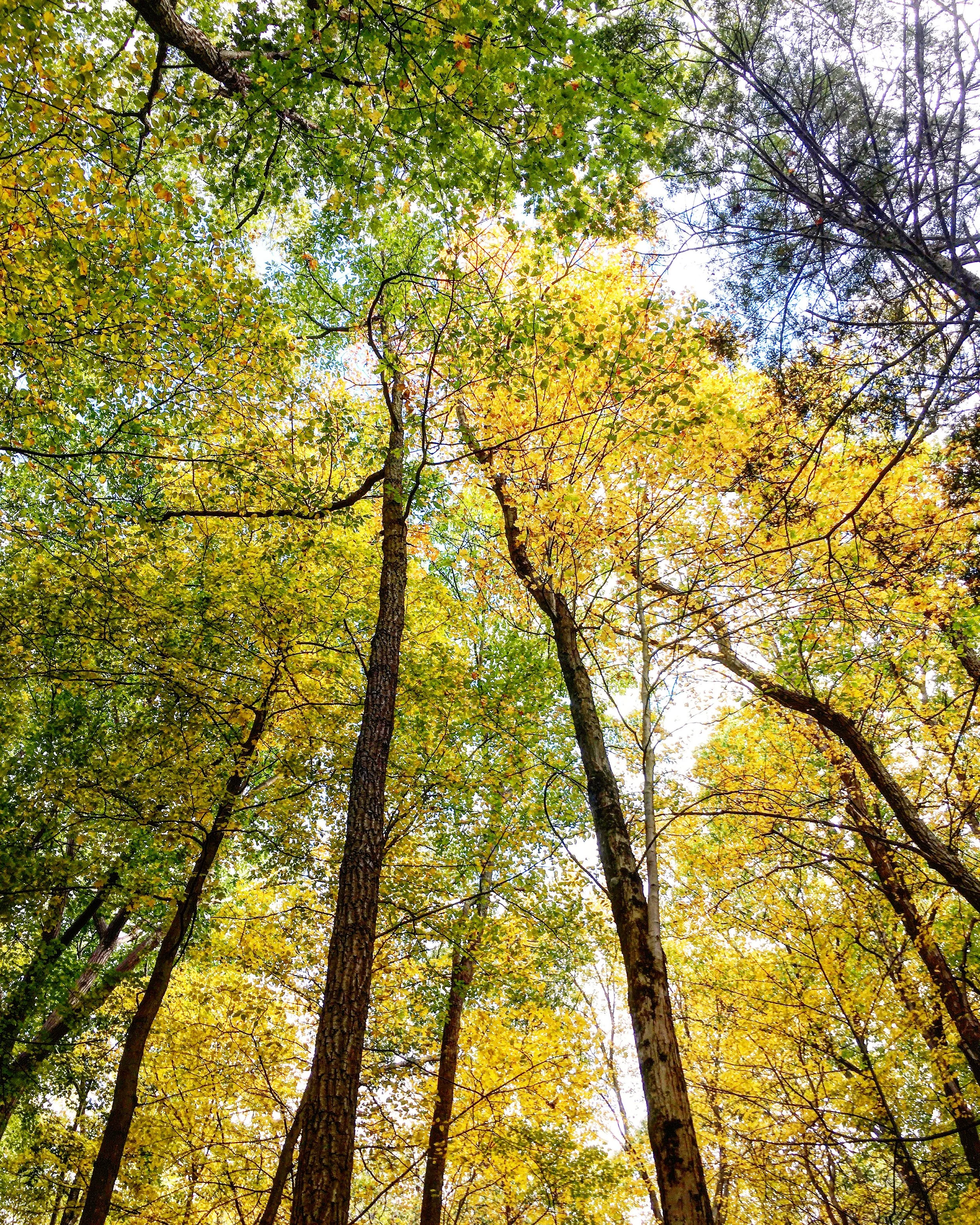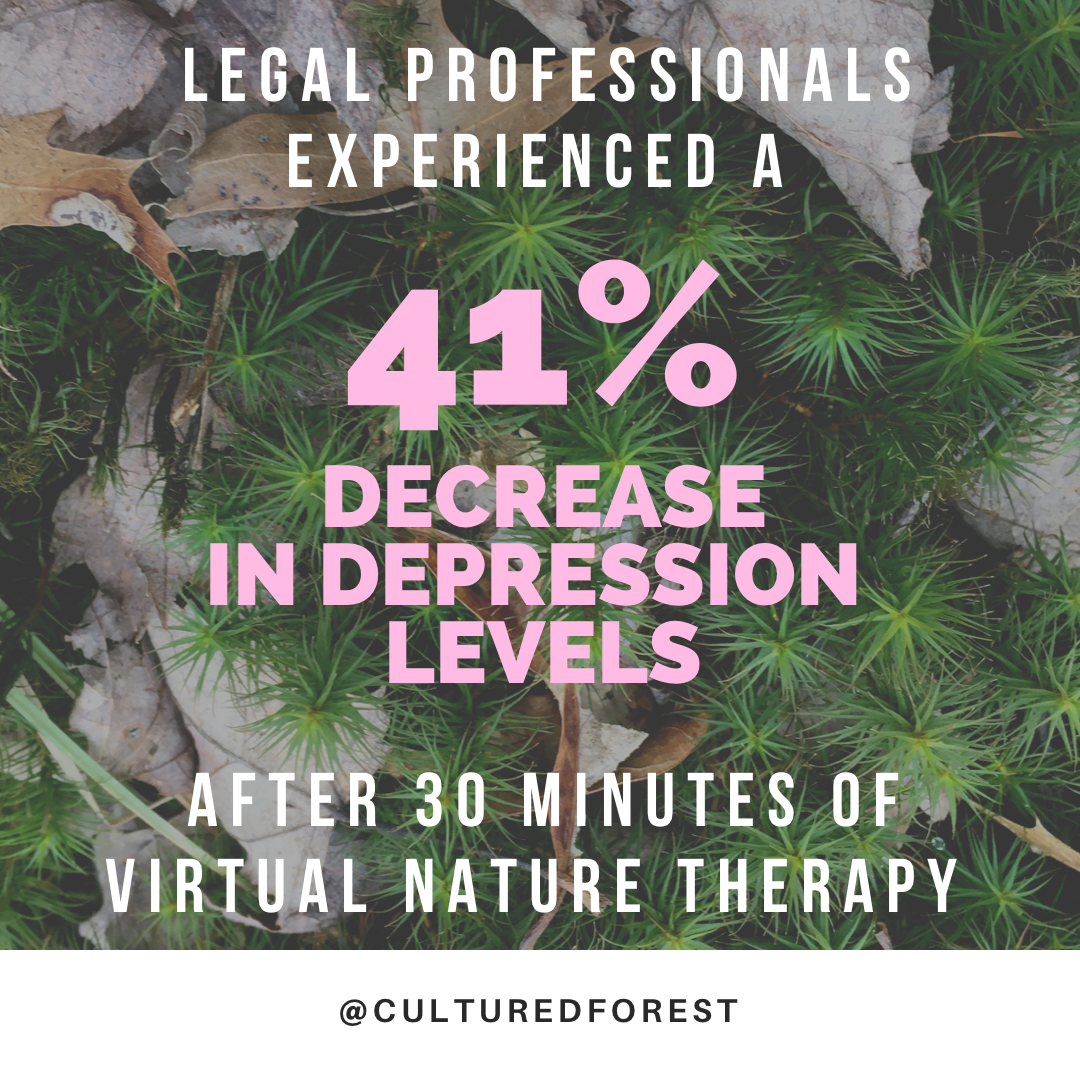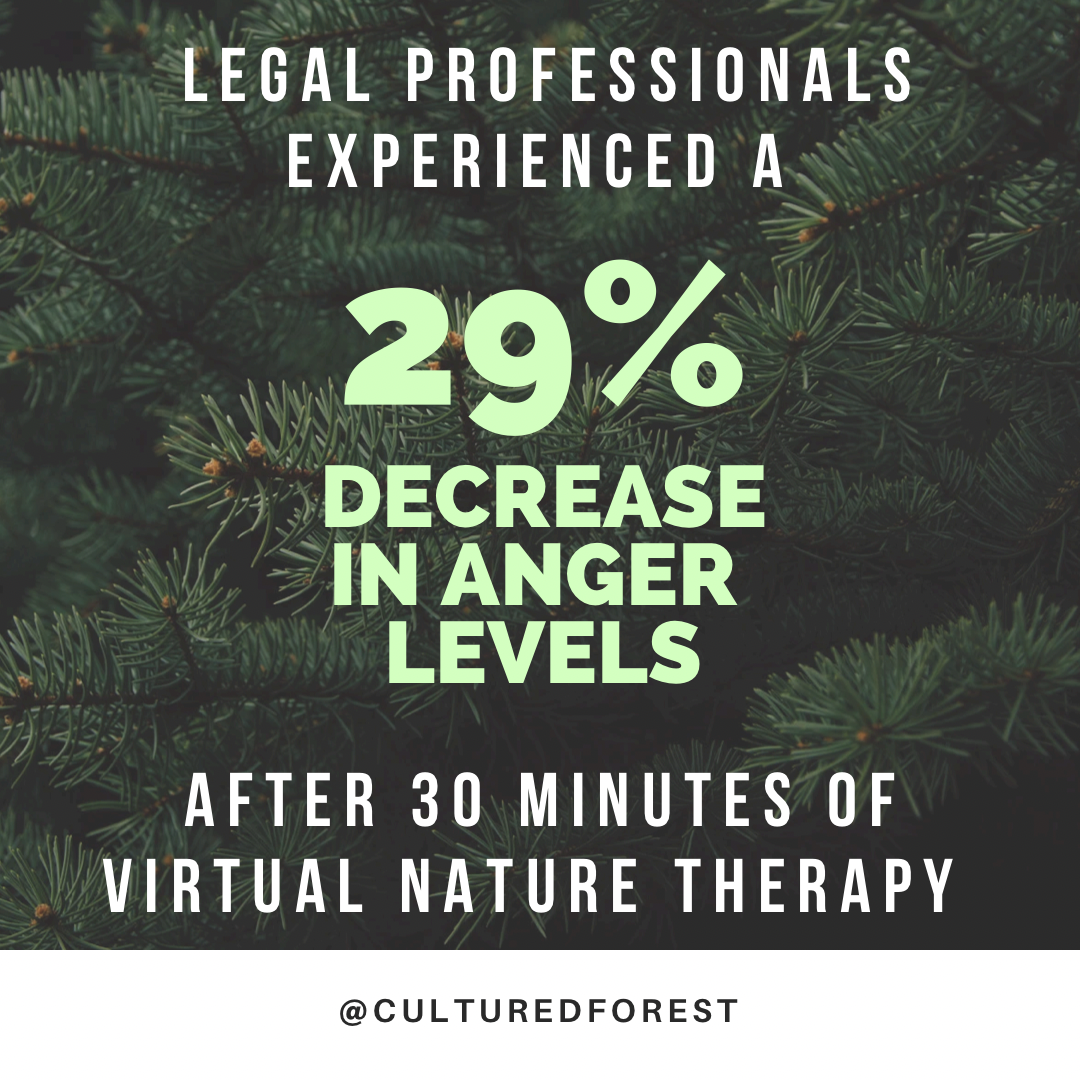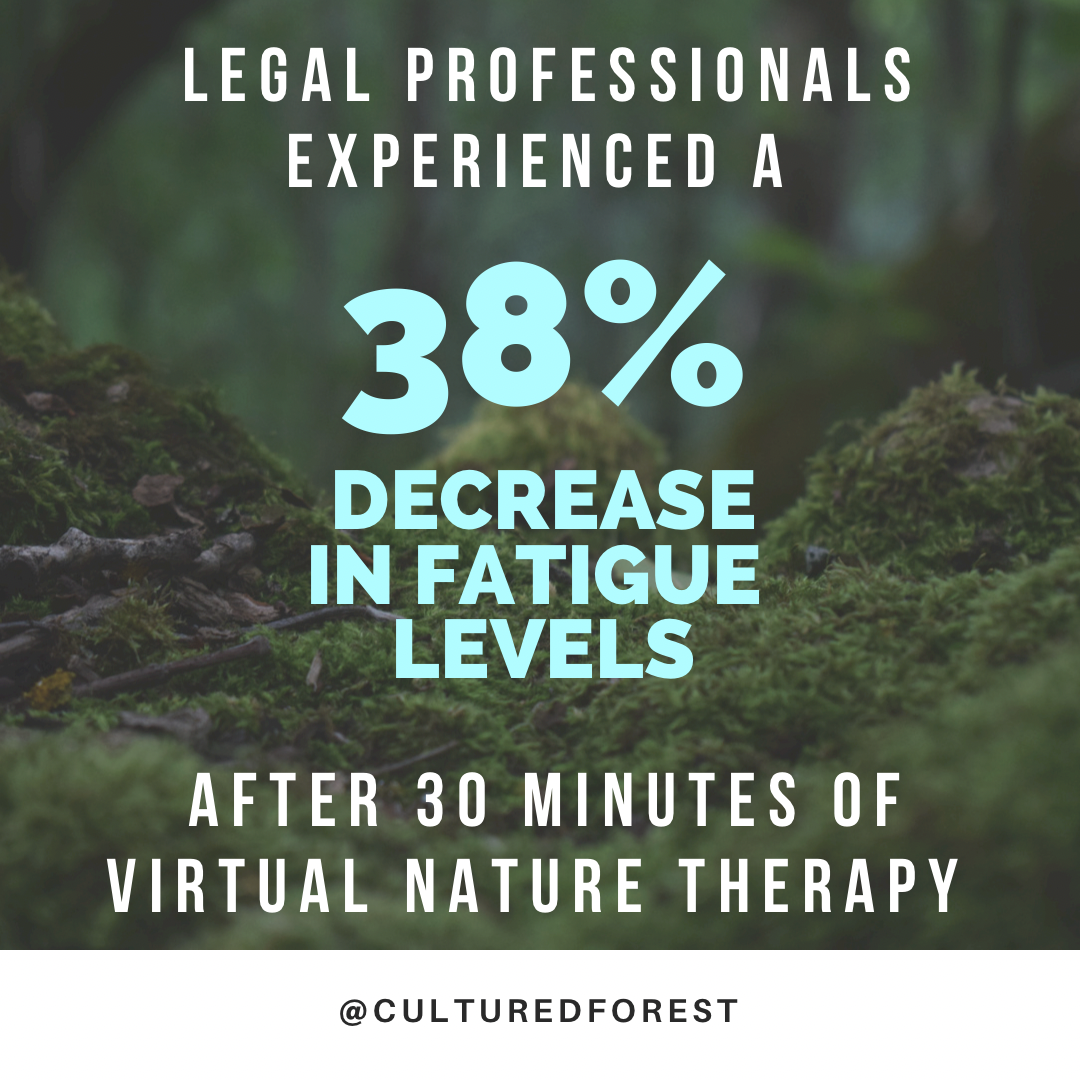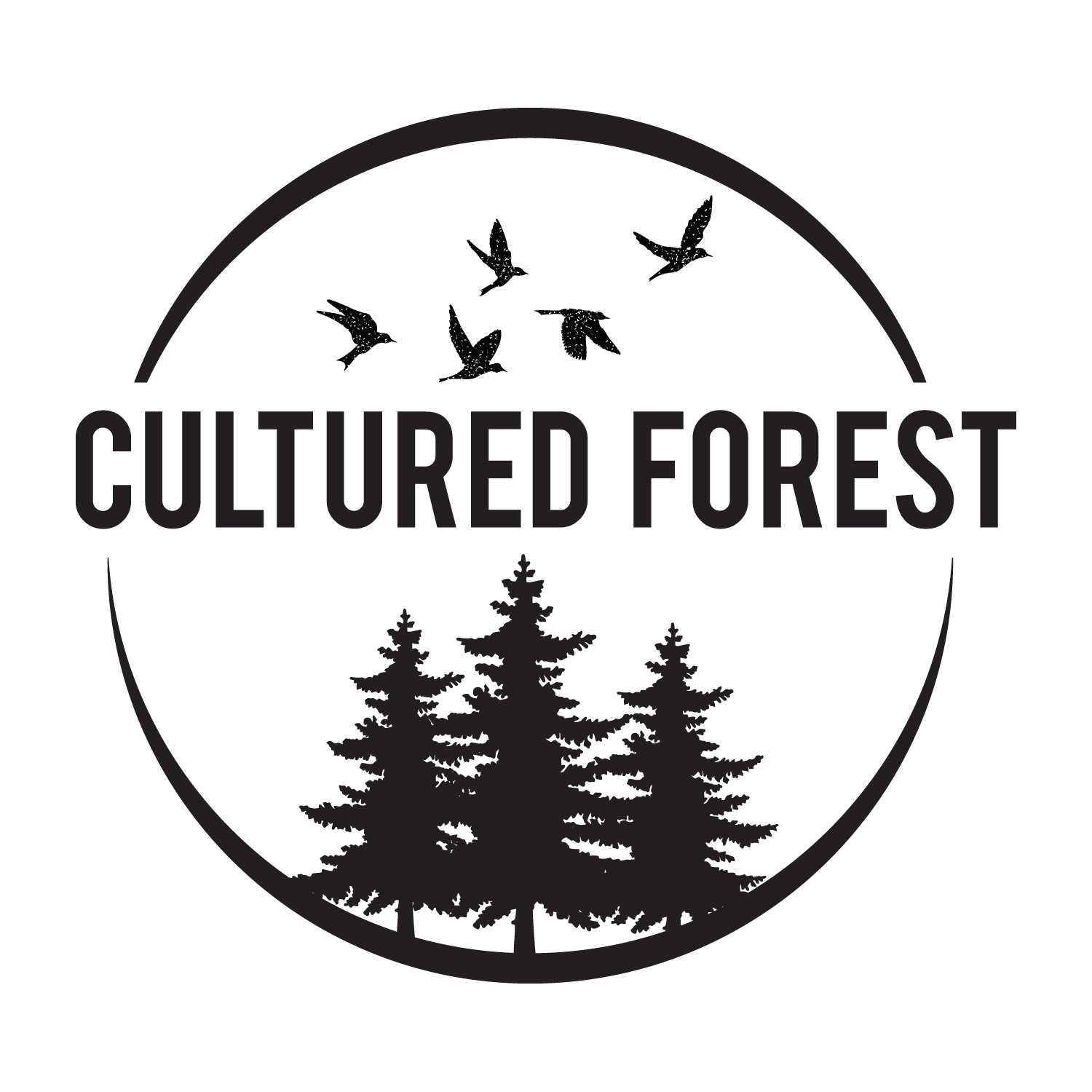The ABA Journal recently reported that the most stressful occupation in America is being a lawyer according to research from Washington Post.[1] In response to this, Cultured Forest conducted a voluntary study inviting anyone who works in the legal profession to take part in a 1/2 hour Virtual Nature Therapy via Google Video chat. We reached out to various bar associations, legal assistance programs and contacts seeking volunteers to participate in the interactive session. Our sample size for the preliminary study was a limited group of nine participants, and we believe the resulting improvements in the mood states of participants were significant enough to warrant further research.
Shinrin-Yoku or “Forest Bathing” is a public health practice instituted in Japan in the 1980’s to combat high levels of stress, burn-out and suicide rates in densely populated urban areas. Research conducted in Japan has shown that spending time mindfully connecting with Nature reduces heart rate, pulse, the stress hormone cortisol and improves mood.[2] Additionally, the Cleveland Clinic noted the benefits of Forest Bathing during the COVID pandemic.[3] The Cultured Forest study followed the course of research we observed while training in and studying Shinrin-Yoku and certifying in Forest Medicine with INFOM in Japan. Namely, we used the POMS test that measures mood states before and after a walk in the forest in traditional Shinrin-Yoku.
We were curious if a Virtual Forest Bathing experience could also improve mood states of participants in the same way a walk in the forest might. So we trialed a Virtual Nature Therapy that we created during the COVID pandemic for this study. The intention of the experience was to recreate the sense of community one feels when experiencing a guided forest therapy walk. The session included 15 minutes of education around Forest Therapy and Mindfulness. We then led a 9-minute guided meditation in which we had participants close their eyes and described a forest scene that engaged the five senses. We then asked participants to create a Haiku poem after thinking of a place in nature that helps them feel calm. We closed the session with goal setting on ways to incorporate nature connection into their routines.
Following this experience, we asked participants to fill out a survey that would gauge the following four mood states before and after the experience: ANXIETY, DEPRESSION, ANGER AND FATIGUE. We had them rate these moods on a scale of 1-5 with 1 being “not at all” to 5 being “extremely”. We saw a decrease in the intensity of all four moods among participants after the 30 minute nature therapy experience.
The Anxiety level of 9 participants totaled 24 before the experience and 15 afterward for an improvement of 38%.
The Depression level of 9 participants totaled 17 before the experience and 10 afterward for an improvement of 41%.
The Anger level of 9 participants totaled 17 before the experience and 12 afterward for an improvement of 29%.
The Fatigue level of 9 participants totaled 21 before the experience and 13 afterward for an improvement of 38%.
When asked which activity impacted participants most, the answers varied. Most of them enjoyed the guided nature meditation, however three reported they found writing the Haikus impactful and one participant appreciated setting forward thinking goals about ways to connect with nature.
We have led many similar experiences since COVID, and were most impressed with how quickly the lawyers and legal professionals tapped into their creativity to write a Haiku. A sampling of the poems can be found below:
“White birch surrounds me.
Breezes and sunlight abound.
My soul quieted.”
-Bracha Etengoff, a NY attorney focused on probate and wills; mediation; and prenuptial agreements. www.brachalaw.com
“The forest is warm
The air is clear and ground soft
The trees felt like home”
-Jeffrey Cunningham, Esq., Partner at Goldberg Segalla
“Forest
Sister, Mother, Friend
Truly, the perfect comfort
You give me so much”
-Dee, My Mindful Counsellor, Malvern, UK
In conclusion, Forest Therapy is a well researched and documented public health initiative that has been implemented in many countries, and is gaining traction in the United States. We believe the results of this preliminary study demonstrate the potential for using Forest Therapy programing to reduce stress in industries with high burn-out and stress rates, and it is worth researching further. Virtual Nature Therapy could be a unique solution providing quick relief from symptoms related to high stress careers. We would recommend further studies with larger test groups that gather more metrics behind participants. We recommend additional testing gauging how long mood improvements last. This method of research also gives organizations an option for gauging and addressing the anxiety, depression, anger and fatigue levels of their participating employees. Finally, we believe the positive feelings that the experience encourages towards nature could lead to participants getting exercise outdoors as well as finding a desire to better care for and conserve the environment.
For more information on our background research behind burnout and Forest Therapy see the Cultured Forest White paper on Nature Mindfulness as a remedy for Burn-out HERE.
Sources
[1] Weiss, Debra Cassens. “Law is the most stressful profession, newspaper's analysis finds.” ABA Journal, Jan 24, 2023, https://www.abajournal.com/news/article/law-is-the-most-stressful-profession-newspapers-analysis-finds
[2] Park, Bum-Jin, et al. The physiological effects of Shinrin-yoku (taking in the forest atmosphere or forest bathing): evidence from field experiments in 24 forests across Japan. Environmental Health and Preventive Medicine, June 2009, 15(1):18
[3]“Why Forest Therapy Can be Good For Your Body and Mind.” Health Essentials, Cleveland Clinic, 6 May 2020, https://health.clevelandclinic.org/why-forest-therapy-can-be-good-for-your-body-and-mind/. Accessed 4 Feb. 2022.
